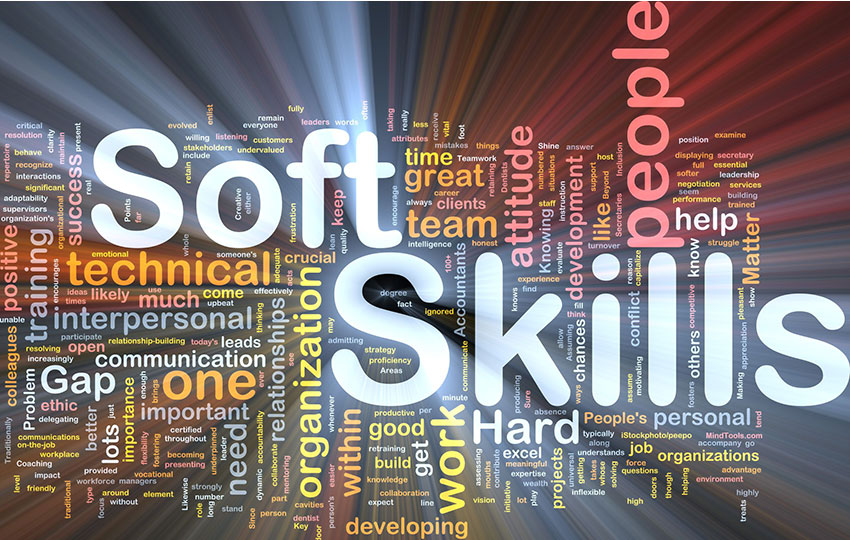Educable and trainable characteristics of employees are extremely crucial due to the fact that they contribute to the personal development of employees and therefore increase their work performance. Most occupations have as a prerequisite that those who work in it have specific capacities that permit them to do the certain job. These abilities are known as hard or technical skills. In order to learn and acquire these specific abilities people commonly register an educational program where they receive classroom teaching and instruction as well as practical and vocational training. But, apart from the academic qualifications required by employers, the other key element taken into account by recruitment agents is what we call soft skills. These “soft” or “non-academic” skills, are now the key to success that makes the difference. But what exactly is going on?
What are Soft Skills?
Soft skills is a term usually used by careers advisors and employers to describe the necessary and basic personal and social skills people must have in order to do most jobs. Soft skills are the personal characteristics and unique skills each of us possess. These qualities have nothing to do with the knowledge someone has on specific issues. They are personal skills, however required by most professional positions. Overall, include our attitudes, personal habits and interpersonal behavior. Soft skills are associated with the development of the personality itself and is not easily quantifiable but qualitatively assessed. Furthermore they are much less tangible than hard or technical skills and on the contrary, people do not learn them by enrolling in a training program.
Why are they so important?
Nowadays, there is a plethora of candidates with good education and work experience. Enterprises therefore seek people who can make a difference, give a comparative advantage especially in an economic downturn, possess business acumen and have innovative and novel ideas. Soft skills help us do our jobs. They:
- Allow to effectively and efficiently use technical skills and knowledge.
- Improve the way we interact with our bosses, workmates and customers.
- Permit us to get our work done on time. They influence how we feel about our jobs and how others perceive us.
- Enable us to build constructive working relationships with others, or to be a constructive and helpful employee.
- Create an effective communication and a positive approach to work as well as an effective performance in the workplace.
- Include the management of ourselves and our relationships with other people, namely the management of human relations.
- Give the capacity to communicate, connect and socialize with other people.
Examples of Soft Skills
The most important Soft Skills are:
- Οrganizational skills
- Communication and interpersonal skills
- Creativity
- Collaborative Skills
- Problem solving and Critical Thinking
- Leadership Skill
- Time management skill
The existing situation in Vocational Education and Training.
Educational institutions around the world have realized the urgent need to prepare their students for a complex and uncertain society as well as a competitive labour market. They have accepted that soft skills are a considerable privilege for the future employees, although there is still a significant confusion over how soft skills should be defined and implemented. Employers have begun to give priority in behavioural over technical skills, and individuals who have the pertinent soft skills are preferred over those who perhaps have more technical skills. It is then becomes apparent that is absolutely imperative to focus not only on the instruction of technical skills but also on teaching young people how to show up their skills on time, how to work in teams and collaborative and how to take the supervision of their skills.
The Vocational Education and Training (VET) system concentrates on practical as well as personal skills in order to make the most of young people’s employability potential. It prepares people for specific trades, crafts and careers at various levels from a trade, a craft, technician, or a high professional practitioner position in a number of different careers. It also raises the quality of training (initial training and continuous development) and aims to the acquisition of education that is more relevant to the labour market.
Therefore, teaching practices concerning the development of soft skills in students of VET education entering the labour market is extremely important. For the existing adult workers, who have specific learning needs, teaching these skills, separately from the technical skills may also be needed. Soft skills units, such as communication, collaboration and time management are the key elements for a successful employee.


